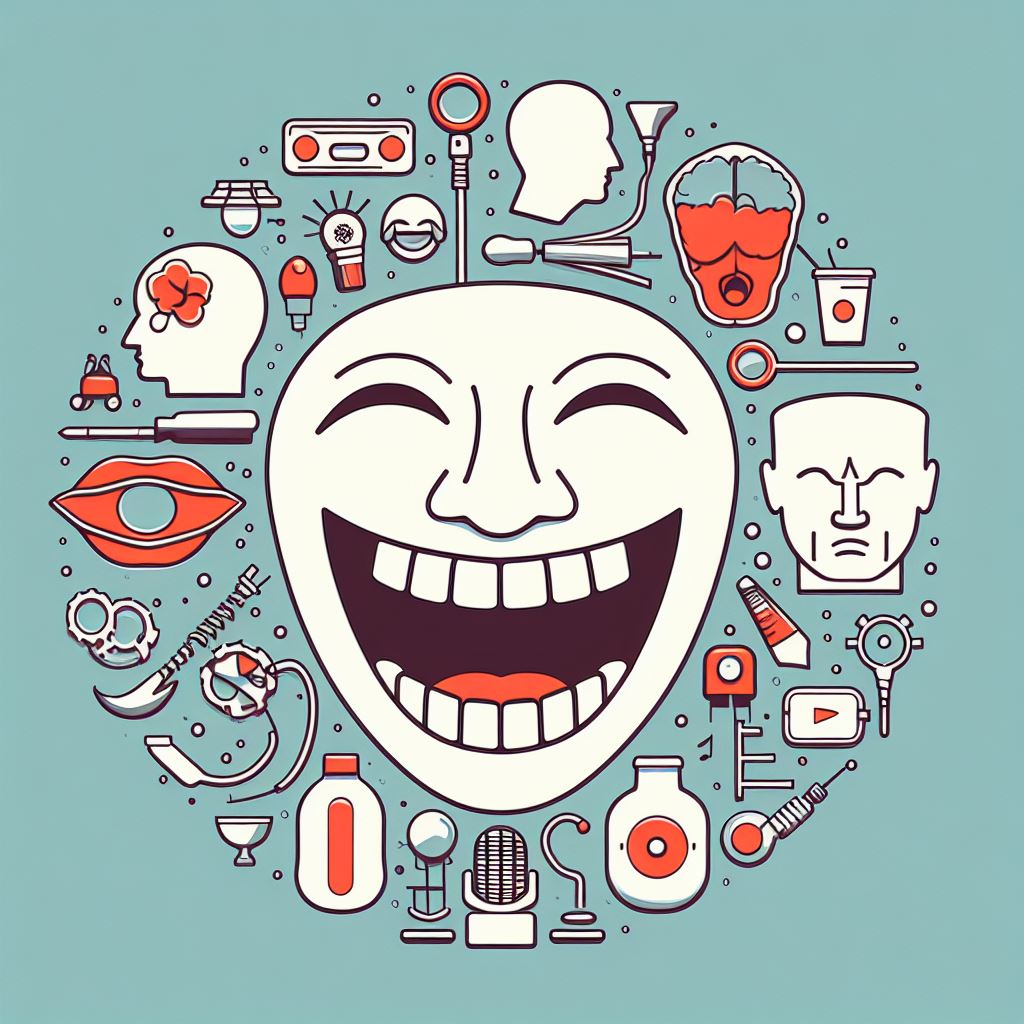
Discover more about the psychology and neuroscience behind laughter and why laughter is healthy for both our bodies and minds.
The Psychology of Laughter
UCLA professor of cognitive neuroscience Sophie Scott explains the psychology behind laughter. She starts off by explaining how during states of high emotional arousal (whether joy or pain) we often use non-verbal sounds to communicate our feelings.
For example, while angry we may scream or yell. Laughter is another one of these non-verbal sounds. It is typically seen as an expression of happiness, joy, surprise, and sometimes even stress. It has also been shown to play a very universal role throughout other cultures to facilitate social bonding, as well as within other species. For example, scientists have found laughter among chimpanzees, bonobos, and some argue even rats (and as you will see below: penguins too!)
Tickling is one of the most basic stimuli that causes laughter. Dr. Scott explains that it may be an evolutionary mechanism designed to facilitate social bonding between mother and child.
As our social world develops further, we share laughter with others in a myriad of different ways. Sometimes we even find ourselves laughing just because other people laugh, even if we don’t know why they are laughing. This demonstrates a kind of behavioral and emotional contagion involved with laughter (probably as a result of empathy).
When neuroscientists look into our brains while we laugh, they find a lot of neural activity that suggests our brains “get ready to laugh” whenever we hear it. This suggests that laughing may be something that is supposed to be shared between individuals.
Laughter produces endorphins in our brain that make us feel immediately better and relieved afterward. Ever had a good long laugh, where your stomach begins to ache, and you feel like a million bucks? Laughter is a great way to create and share feelings of pleasure and joy with others.
Laughter Benefits Both Physical and Mental Health
Laughter has shown to be really good for your physical health. It can relax your muscles, lower stress hormones, boost your immune system, and prevent heart disease.
A study done in 2005 by the University of Maryland Medical Center showed a link between laughter and healthier blood vessel and blood flow. Laughter has also been demonstrated as a preventive adjunct therapy in diabetes care. It raises good cholesterol and lowers inflammation in our heart.

Patch Adams, as depicted here by Robin Williams, often saw laughter as an important aspect to medical recovery.
But making laughter a part of your day doesn’t just benefit your body. Often times laughter is an expression of joy and delight in something. It helps us boost our mood and appreciate life more. We like being around laughter, because it is contagious, and because it makes us feel so good.
Laughter has also been shown to improve group tension and social conflict, even in very serious situations (like jury duty).
According to researchers:
-
“Laughter is one way of dealing with ambiguity and tension in situations where a group is attempting to make consequential decisions and informal power dynamics are in play. There are very few opportunities to see group decision making, with major consequences, in a public setting. It is usually done in private, such as in corporate board meetings or judicial proceedings. But laughter is something that occurs frequently, and not only because something is funny. Nobody in the jury was laughing at jokes.”
Laughter can be a social lubricant in almost any type of situation. It’s a way to facilitate social-bonding, connection, and feelings of “togetherness.”
Humor Can Be a Type of Reframe
Sometimes we make jokes or laugh in response to really stressful situations.
This is a healthy coping mechanism, and often times humor can be seen as an important reframe to an otherwise unpleasant experience.
Laughter can help us minimize physical, mental, and emotional pain by looking at a situation from the lighter side of things.
How To Embrace Laughter in Your Everyday Life
Here are some suggestions of things you can do to embrace laughter:
- Learn to laugh at yourself. Seriously, laughing at your mistakes allows you to take them less seriously and not get so hung up on the little things.
- Learn to crack jokes about stressful situations rather than complaining.
- Keep stuff around you that lightens the mood. A toy on your desk or a funny poster in your room can become a daily reminder to not be so serious all of the time.
- Make games out of things and be more playful, especially with children or pets who appreciate the attention.
- Watch a funny movie or TV show.
- Find one or two comics to follow on a daily basis. Read them during your morning coffee or on the train to work.
- Do activities that lead to more joy and happiness in general.
Enter your email to stay updated on new articles in self improvement:
